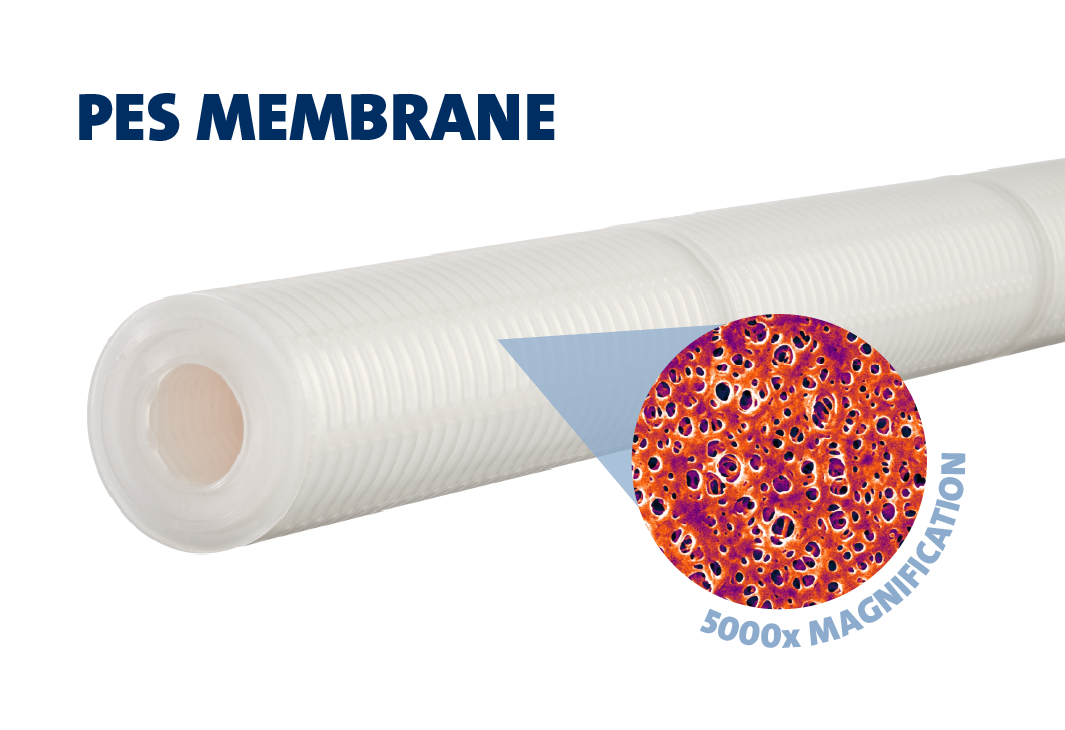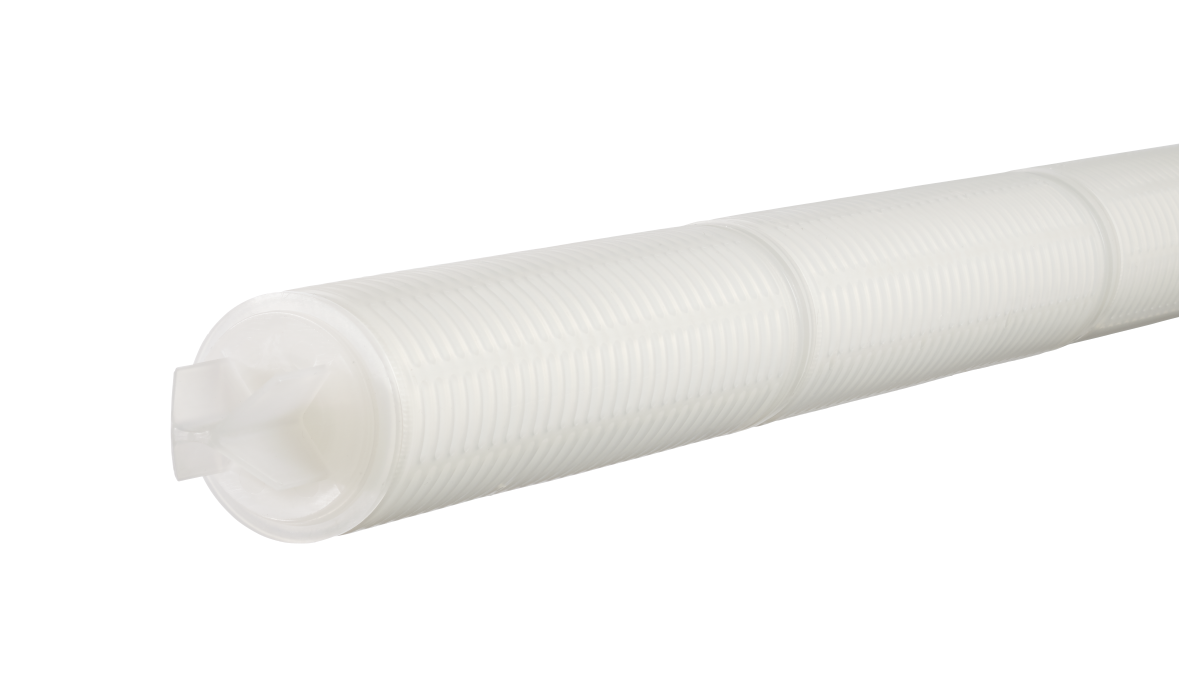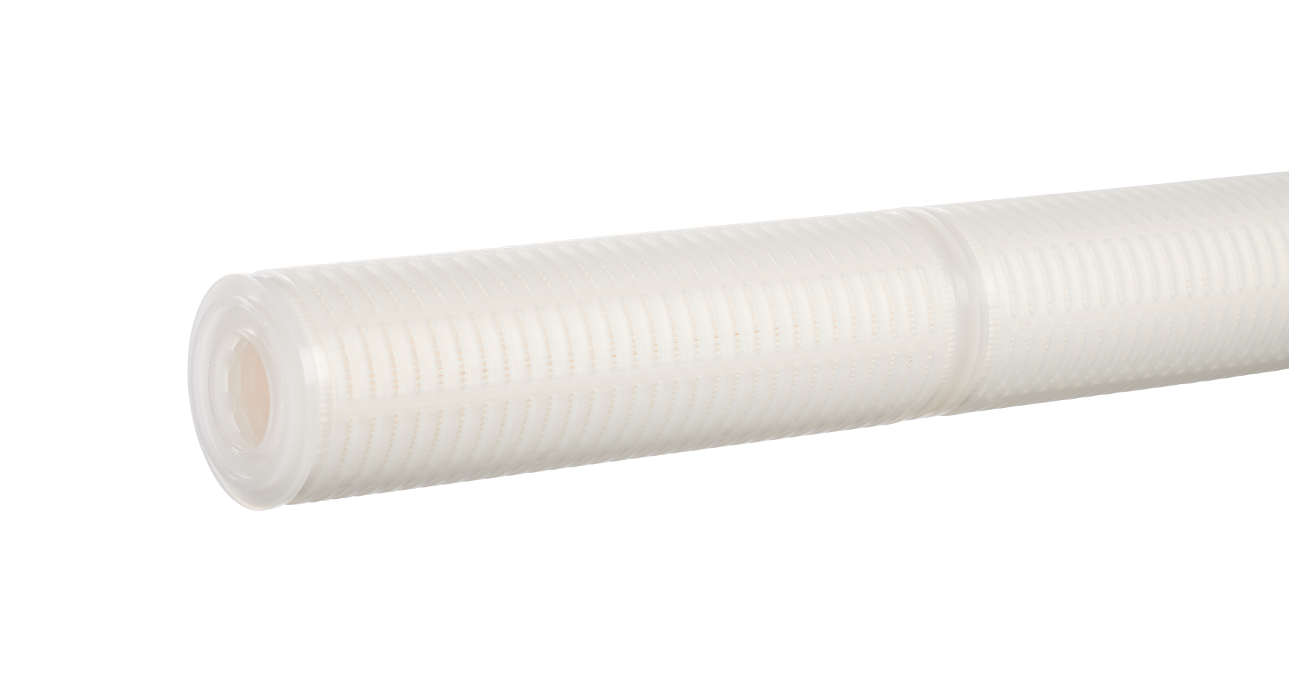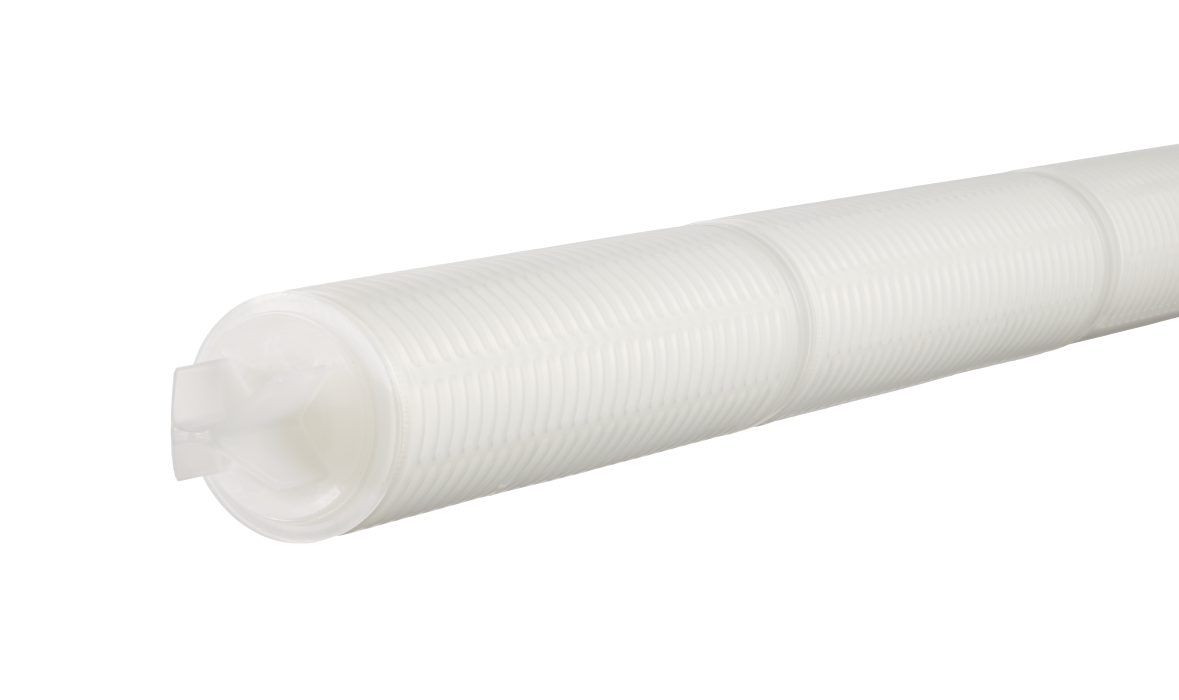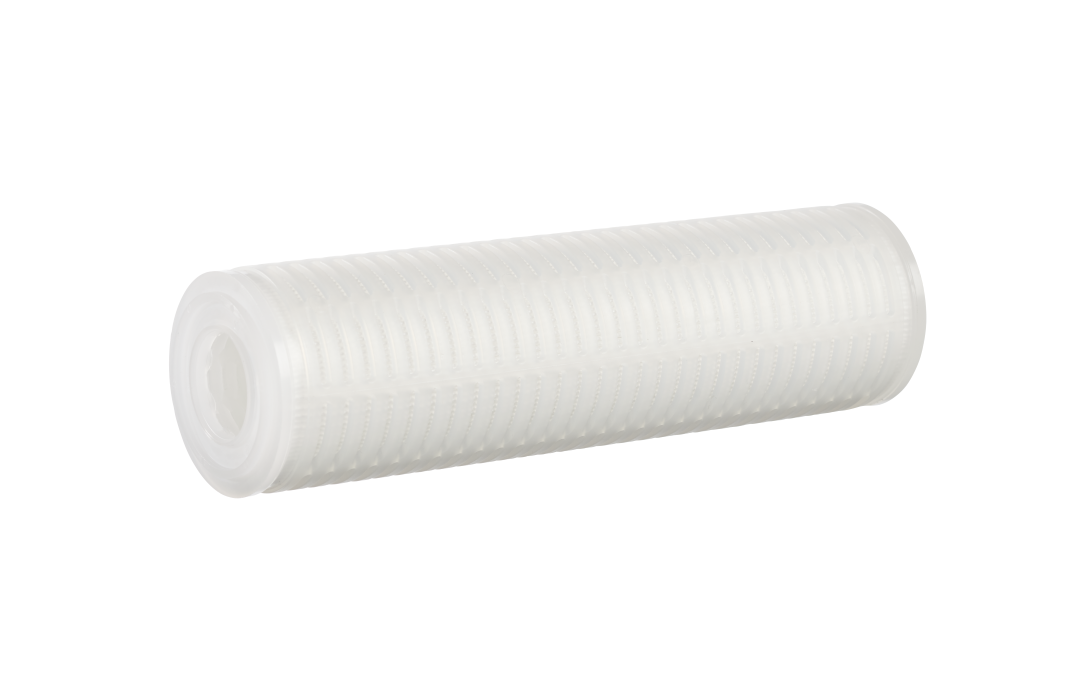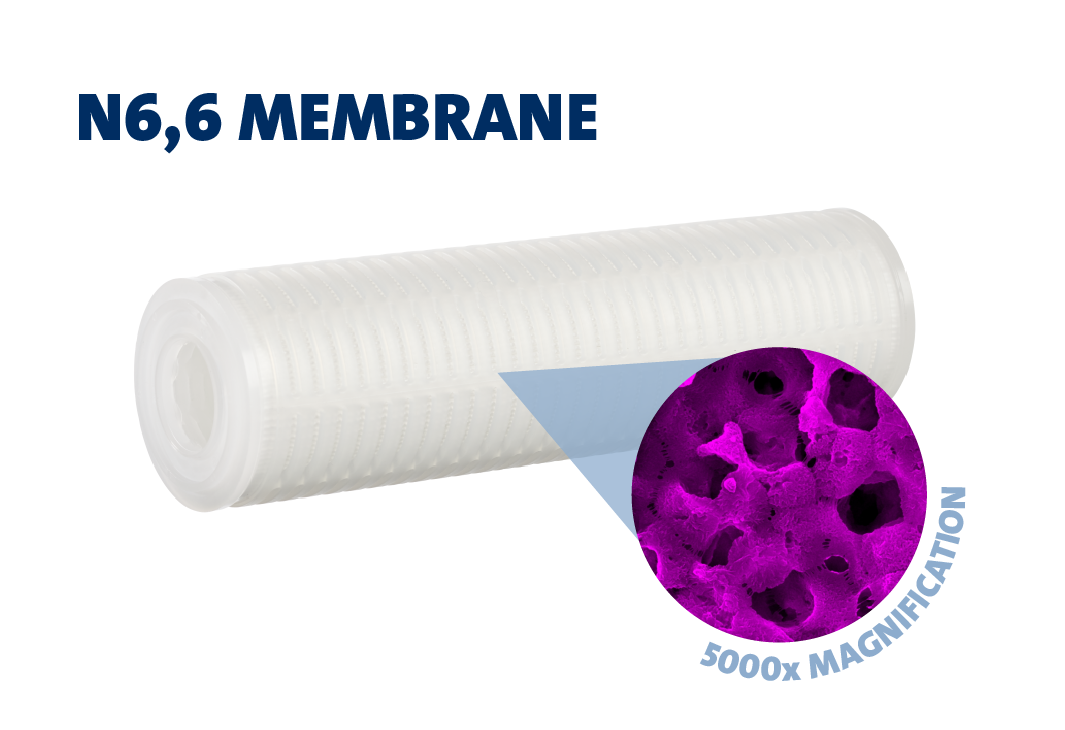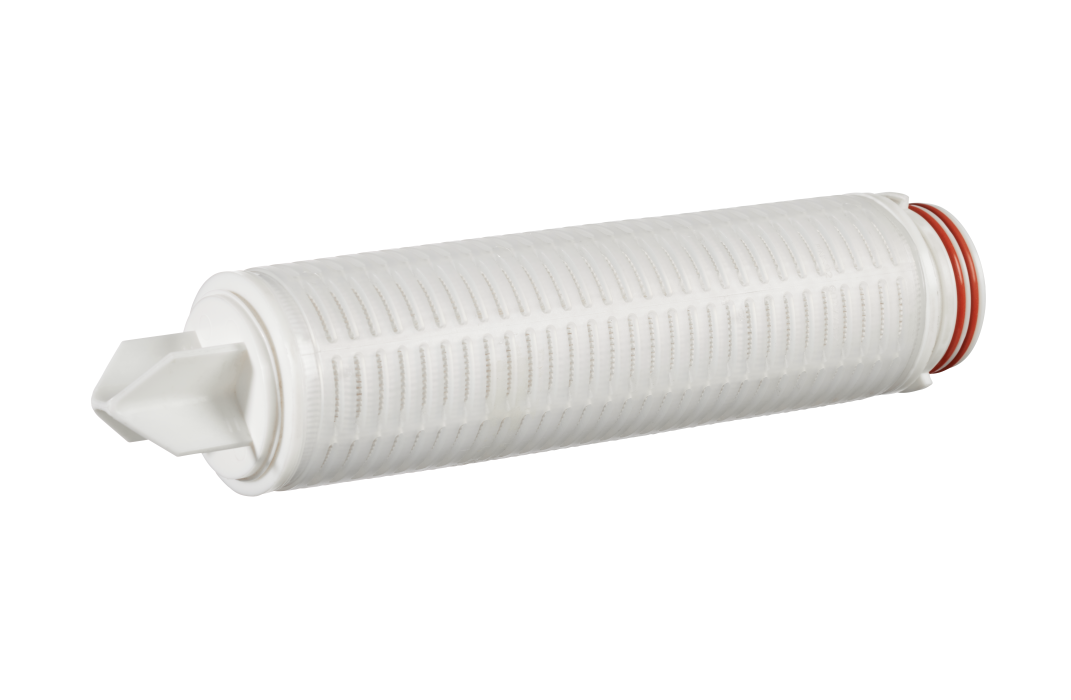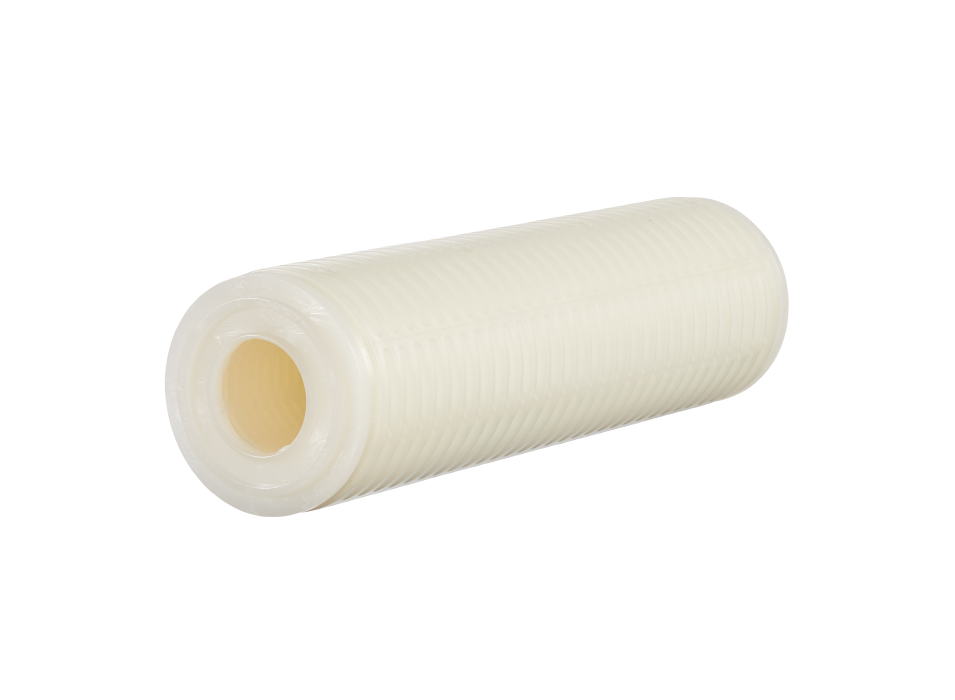Memtrex Pleated Membrane Filters
The absolute-rated membrane cartridge filter
The Memtrex pleated cartridge filter portfolio features a microfiltration membrane as the filtration media. The portfolio covers a wide range of applications thanks to multiple hydrophilic (affinity to water) and hydrophobic (adverse to water) media such as polyethersulfone (PES), nylon 66, and polytetrafluoroethylene (PTFE). All filters in the Memtrex pleated cartridge portfolio feature absolute micron ratings for the best in product safety and purity. For assured quality and performance, the subassemblies used to construct the filters are individually integrity tested. Memtrex filters are manufactured under a quality management system that has been certified to meet ISO 9001 standards. Each filter is assigned a lot code to ensure traceability of the data and materials used in the manufacturing process.

